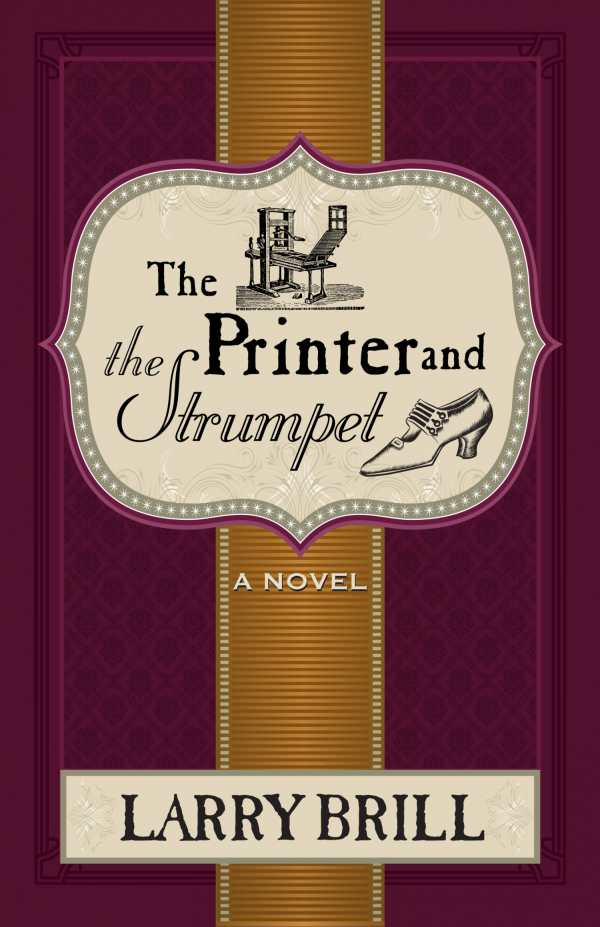The Printer and the Strumpet
Further Misadventures of Leeds Merriweather
In the entertaining historical novel The Printer and the Strumpet, the American Revolution is seen from the perspective of a flawed wordsmith.
In Larry Brill’s satirical historical novel, The Printer and the Strumpet, a colorful newsman covers the tumult before the American Revolution.
Leeds is a Boston journalist and the owner of the New England News-Journal. An exiled Londoner whose printing press accepts business from the Tories, he can’t avoid politics, even though he prefers the middle road. When an associate of his gambles and loses the deed to the paper, Leeds is pressured into becoming an outlet for the loyalist governor in exchange for working off the debt. Leed’s self-preserving instincts are challenged when he’s enchanted by a young woman, Sally, whose sympathy for the colonial radicals spurs him to choose a side.
Modern political allusions are worked into this volatile history via the Sons of Liberty, a reminder that little changes when it comes to people volleying for control over the public’s opinions. Contemporary trends, as with a craze for coffee houses, which serve as an antidote to the tea tax, are lively additions, while fake news, alternative facts, and catchy slogans slip into characters’ conversations, too. The story comes to feel prescient, but also highlights absurdities: Leeds positions himself as one of the first on the scene reporters, capturing the Boston Tea Party from an eyewitnesses perspective.
Leeds’s passion for his work saves him times, while his talent for improvisation, rooted in his time as a former street patterer, is evident in situations like his finding common ground with a bear-wrestling thug who’s been sent to intimidate him, and him keeping up a façade with the governor and his cronies while helping Sally to print controversial leaks. As they engage in treasonous activity, tension is generated around their eventual fates; Leeds’s gradual conversion to the American side is sympathetic after he witnesses many British corruptions.
Early social scenes set among the governor’s crowd, and initial questions about Sally’s real role and involvement with the town’s brothel, undermine the narrative’s sense of continuity. Sally’s motivation for joining the colonials is rooted in revenge and outrage, but is ultimately not as distinctive as other elements of the book. Her independent streak, which leads her to wear disguises and brave violent frays, is more compelling. A lengthy sequence during which Sally and Leeds work to prevent an assassination is a pure farce, and its fallout kicks off the start of the war. Leeds’s late maneuvers are clever, and brotherhood and rivalry among fellow printers emphasizes the ideal that words are powerful and that the truth, no matter how unpalatable, should be shared.
In the entertaining historical novel The Printer and the Strumpet, the American Revolution is seen from the perspective of a flawed wordsmith.
Reviewed by
Karen Rigby
Disclosure: This article is not an endorsement, but a review. The publisher of this book provided free copies of the book and paid a small fee to have their book reviewed by a professional reviewer. Foreword Reviews and Clarion Reviews make no guarantee that the publisher will receive a positive review. Foreword Magazine, Inc. is disclosing this in accordance with the Federal Trade Commission’s 16 CFR, Part 255.

